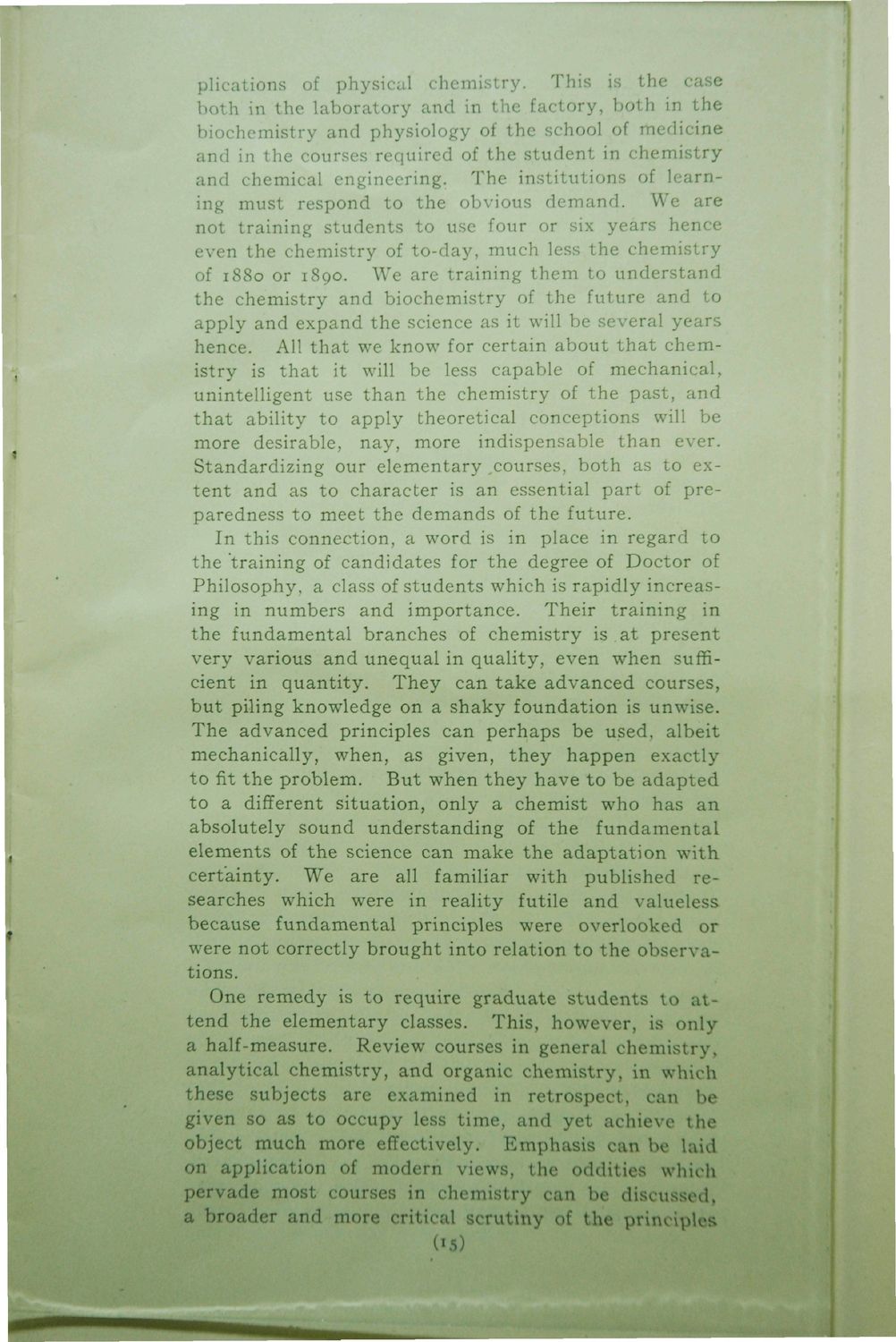| |
| |
Caption: Dedication - New Chemistry Building
This is a reduced-resolution page image for fast online browsing.

EXTRACTED TEXT FROM PAGE:
plications of physical chemistry. This is the case both in the laboratory and in the factory, both in t h e biochemistry and physiology of the school of medicine and in the courses required of the student in chemistry and chemical engineering. The institutions of learning must respond to the obvious demand. We are not training students to use four or six years hence even the chemistry of to-day, much less the chemistry of 1880 or 1890. We are training them to understand the chemistry and biochemistry of the future and to apply and expand the science as it will be several years hence. All t h a t we know for certain about t h a t chemistry is t h a t it will be less capable of mechanical, unintelligent use t h a n the chemistry of the past, and t h a t ability to apply theoretical conceptions will be more desirable, nay, more indispensable t h a n ever. Standardizing our elementary ,courses, both as to extent and as to character is an essential part of preparedness to meet the demands of the future. In this connection, a word is in place in regard t o the training of candidates for the degree of Doctor of Philosophy, a class of students which is rapidly increasing in numbers and importance. Their training in the fundamental branches of chemistry is . at present very various and unequal in quality, even when sufficient in quantity. They can t a k e advanced courses, b u t piling knowledge on a shaky foundation is unwise. The advanced principles can perhaps be used, albeit mechanically, when, as given, they happen exactly t o fit the problem. But when t h e y have t o be a d a p t e d to a different situation, only a chemist who has a n absolutely sound understanding of t h e fundamental elements of the science can make t h e a d a p t a t i o n with. certainty. We are all familiar with published researches which were in reality futile and valueless because fundamental principles were overlooked or were not correctly brought into relation t o the observations. One remedy is t o require graduate students to a t tend the elementary classes. This, however, is only a half-measure. Review courses in general chemistry, analytical chemistry, and organic chemistry, in which these subjects are examined in retrospect, can b e given so as to occupy less time, and yet achieve t h e object much more effectively. Emphasis can be laid on application of modern views, the oddities which pervade most courses in chemistry can be discussed, a broader and more critical scrutiny of the principles (15)
| |